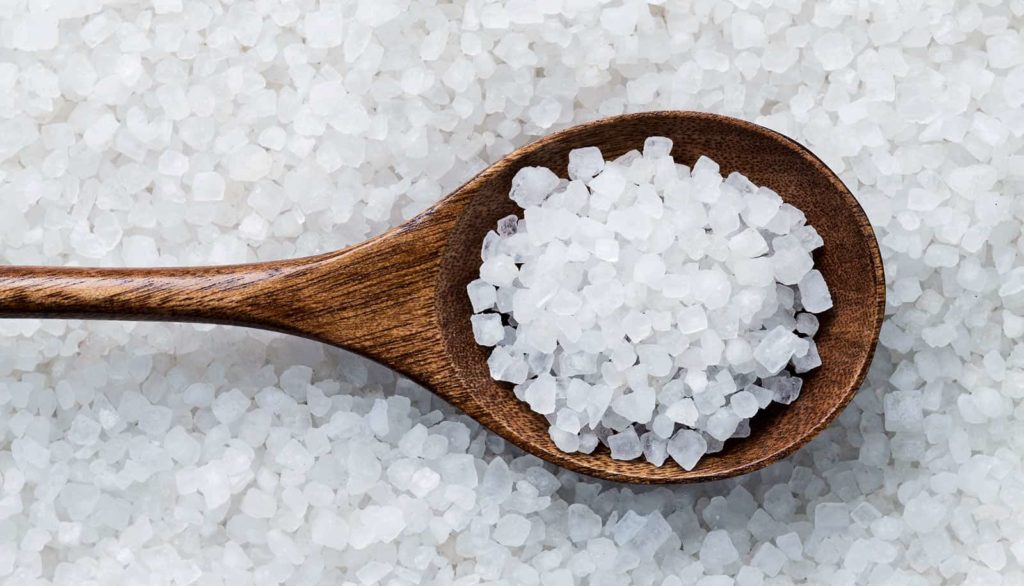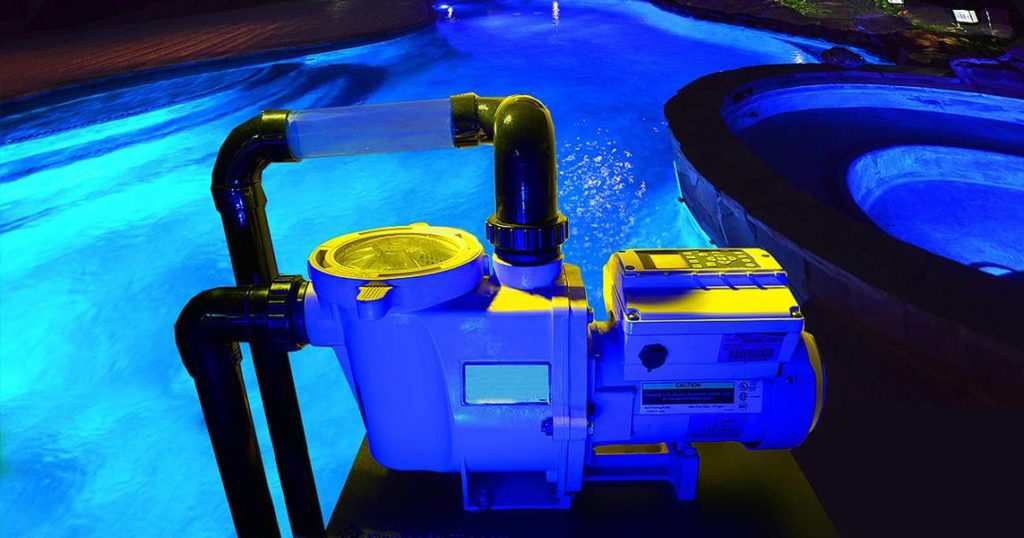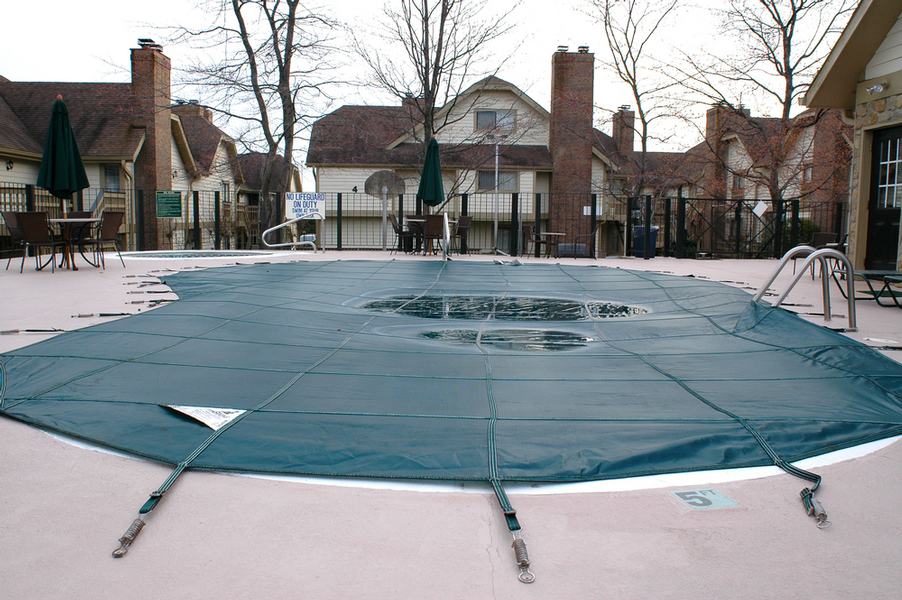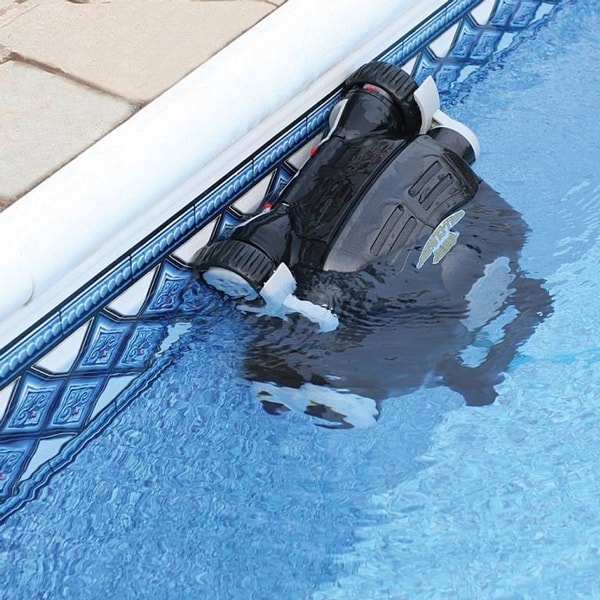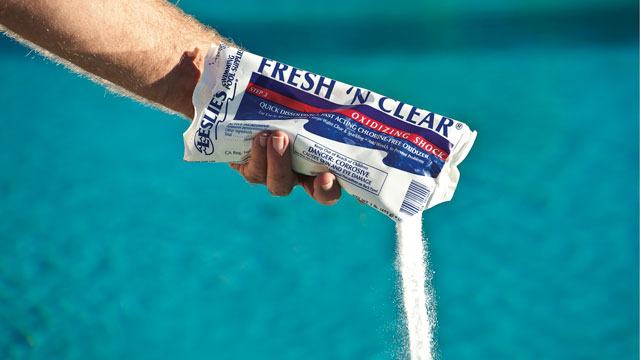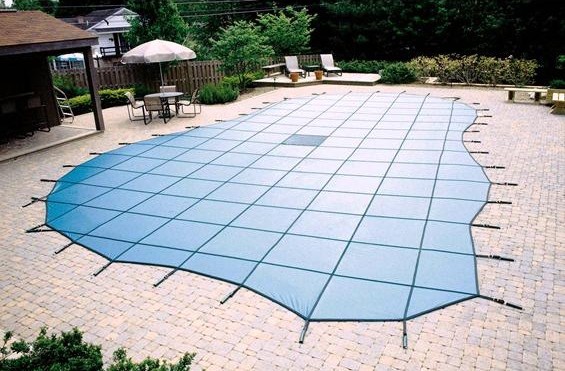Freshwater vs. Saltwater Pools: When you have a swimming pool, you have the option of freshwater or saltwater. Both options are popular throughout the country, and they both come with their pros and cons. In order to figure out which option is right for you, you need to understand the difference between saltwater pools and freshwater pools. This guide illustrates those differences so you can determine what is right for you to use in your swimming pool.
The Difference between Freshwater vs. Saltwater Pools
Freshwater and saltwater swimming pools both run off the same basic set of equipment. And, contrary to what some people think – they both use chlorine to sanitize the water. The only difference is the way the chlorine is delivered to the water to kill bacteria and sanitize the pool. For a freshwater pool, this comes from tablets or chemicals added to the water – the frequency is dependent on the size of the pool, pool usage volume and weather conditions.
For a saltwater pool, the chlorine is produced by a chlorine generator – a special piece of equipment that releases chlorine gas into the water by breaking down salt. This generator transforms simple table salt into chlorine gas.
Chlorine vs. Salt Cost Difference
With the cost of salt at approximately .15 cents a pound – a saltwater system is far cheaper to run than freshwater (chlorine is approx. $2.00 a pound). And, you don’t add salt with the same frequency as you would have to add chlorine. At start-up of a new saltwater pool, you may add 11-12 bags of salt (approx. $6 each) for a 20,000 gallon pool. After that, you may go for a couple years before adding any more salt to the system.
When comparing the cost of a freshwater swimming pool or a saltwater swimming pool, there are two parts: initial installation and long-term maintenance. The installation of a saltwater pool is more expensive than the freshwater pool, however, the constant need to add chlorine to a freshwater system makes it more costly to run. There are other factors like corrosion that can impact maintenance costs, but as a whole, saltwater pools require less money to keep running than freshwater pools.
Energy Consumption
Some people with saltwater pools claim they have to run their equipment for longer periods each day because the chlorine is injected incrementally instead of all at once. This leads to higher energy usage. However, in our experience, this is not true. By installing a variable speed energy-efficient pump with a saltwater system, you can actually reduce energy consumption.
Sanitation Performance
In a freshwater pool, chlorine is added periodically with the highest level of protection starting right after it is added. Once the chlorine dissipates, you have to add it again. With a saltwater pool, you have a consistent flow of chlorine being produced by the chlorine generation equipment, so there’s a healthier water quality as a whole. There is also no need to buy, handle or store chemicals.
How a saltwater pool works:
- Initially, salt is added to the pool water
- Water and dissolved salt flow through the generator cell.
- Through electrolysis it is converted into chlorine.
- Chlorinated water is returned to the pool. Once the chlorine has finished purifying the pool of contaminants, it reverts back into salt and the cycle repeats.
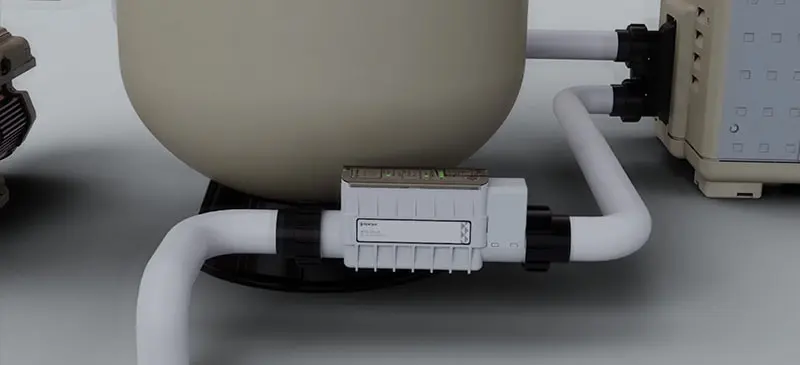
Water Quality – Freshwater vs. Saltwater Pools
You will notice a difference in taste between freshwater and saltwater, but, not as drastic as you might think. The salt saturation in a saltwater pool is only about 3,200 parts per million, which is roughly the amount of salt found in a teardrop. In contrast, ocean water has a salt content of 35,000 ppm.
You will definitely notice a difference in how the water FEELS. It is like adding water softener to your pool – it is much less abrasive on your skin, eyes, swimwear and safer for the environment too.
Corrosion from Saltwater
Despite all of the benefits of saltwater pools, the one big drawback is the corrosion that the salt can cause. The salt can leave a residue on stone that is difficult to clean off over time. It can lead to issues with pool equipment if the pool is not properly maintained. The cells in the salt generator may need to be replaced every five years or so but with proper selection of your equipment and expert installation, you should be able to minimize corrosion issues.
Freshwater vs. Saltwater Comparison Chart
| Comparison | FRESHWATER | SALTWATER |
| Initial Equipment Cost | No Additional | $600 – $2000 |
| Water Quality | Harsh | Softer, Gentle on Skin & Eyes |
| Water Sanitation | Best after Chlorine is added | Consistent Sanitation |
| Sanitation Cost | $300 – $800 per year | Approx. $75 per year |
| Equipment Maintenance | Normal Costs | Higher costs due to corrosion |

